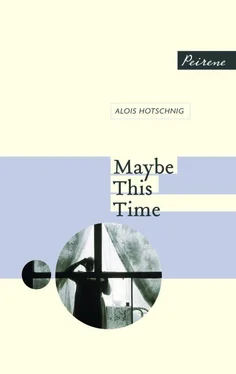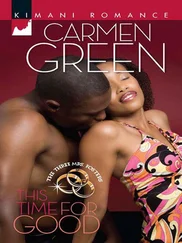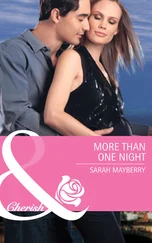Alois Hotschnig - Maybe This Time
Здесь есть возможность читать онлайн «Alois Hotschnig - Maybe This Time» весь текст электронной книги совершенно бесплатно (целиком полную версию без сокращений). В некоторых случаях можно слушать аудио, скачать через торрент в формате fb2 и присутствует краткое содержание. Год выпуска: 2011, Издательство: Peirene Press, Жанр: Современная проза, на английском языке. Описание произведения, (предисловие) а так же отзывы посетителей доступны на портале библиотеки ЛибКат.
- Название:Maybe This Time
- Автор:
- Издательство:Peirene Press
- Жанр:
- Год:2011
- ISBN:нет данных
- Рейтинг книги:4 / 5. Голосов: 1
-
Избранное:Добавить в избранное
- Отзывы:
-
Ваша оценка:
- 80
- 1
- 2
- 3
- 4
- 5
Maybe This Time: краткое содержание, описание и аннотация
Предлагаем к чтению аннотацию, описание, краткое содержание или предисловие (зависит от того, что написал сам автор книги «Maybe This Time»). Если вы не нашли необходимую информацию о книге — напишите в комментариях, мы постараемся отыскать её.
Maybe This Time — читать онлайн бесплатно полную книгу (весь текст) целиком
Ниже представлен текст книги, разбитый по страницам. Система сохранения места последней прочитанной страницы, позволяет с удобством читать онлайн бесплатно книгу «Maybe This Time», без необходимости каждый раз заново искать на чём Вы остановились. Поставьте закладку, и сможете в любой момент перейти на страницу, на которой закончили чтение.
Интервал:
Закладка:
I was about to shout for help, to draw attention to my distress despite the embarrassment, but at that moment I stumbled on a stone. It hurt, but at least I regained my footing. I stood still, relieved to have solid ground beneath my feet again. Gradually I freed myself from the slimy strands. I placed one foot in front of the other and finally arrived at my neighbours’ jetty. For a long time I stayed in the water, waiting to see if the two of them had noticed me. But everything remained quiet. I sat down on the lowest step and gazed at the mass of vegetation that had entrapped me. The waves my thrashing had set off beat against the wooden posts. I noticed a rubber duck tied to one of them with a string. The duck kept bobbing up to the surface, bumping into the post and disappearing underwater again. Finally I had reached the place that had exerted such a powerful pull over me. I climbed the steps and stood on the jetty. But I no longer felt any desire to sit on either of the chairs and I made my way home through the gardens.
I had had enough of it all now, and for a long time I was cured of the craving to creep under my neighbours’ skin. But at night, in dreams, I kept swimming over to them.
After one such night I went down to the jetty. The previous tenant was sitting on the steps. He seemed to have been expecting me. Or perhaps, he simply took my presence for granted. It was hard to tell. He looked over at my neighbours, as if oblivious of me. After sitting next to him for a while, I stood up and went back into the house.
From that day on, I didn’t return to the jetty. It had become his space, and with each day it became more completely his.
He sat there in my place and I watched him from the house. I didn’t take my eyes off him. I saw how he stared over at them as they stared into the water. Then I, too, looked at them. Every day, every night, always, until now.
Two Ways of Leaving
She didn’t go the usual way. She walked more calmly and slowly than she normally did on her way home from work. He followed her. She went in and out of shops. She browsed and asked the shop assistants to show her a dress. Or she took one herself from the rail, held it up in front of a mirror, and disappeared into a changing room or behind a curtain.
In a café, she smoked a cigarette, then another, and sat musing for a while, not paying any attention to the other customers. She searched in her handbag and took out a letter that she placed on the table in front of her. She glanced over it, then read it again and again from the beginning. She put it back in her bag, stood up and left the café. She strolled on from one shop window to the next, a jeweller’s, then a bookshop. She entered the bookshop and left it with one more carrier bag. She paused in front of a café, then walked on. In a children’s clothing shop, she fingered the fabric of a little shirt and of a jacket and trousers. She moved on, then came back, only to turn again and continue on her way.
In the market she walked past the stalls and stands, trying the fruit. She greeted others and was greeted in return, picking up one apple after another or an orange, sniffing it, and putting it back. She bought vegetables and flowers and chatted with the stall-holders.
In the neighbouring park, she sat on a bench under one of the trees and watched the chess players, the couples lying on the grass, the children feeding the ducks and the elderly people from the home nearby. She held the letter in her lap, wrote something, then crossed it out and ripped the letter up with a smile.
Ducks swam towards her, hoping to be fed, but she didn’t notice them. She strolled across a footbridge, then past a row of houses on the other side of the stream. She stopped at one house with a garden. She put her bags down to catch a better view through the shrubbery.
There were children playing in the garden. She watched them for a while before ringing the bell. Then she looked at her watch and moved on quickly and with determination.
She came to a colourful area, with renovated houses, and trees and fountains surrounded by flowerbeds.
He followed her through the area to a roundabout. An enormous willow, its branches reaching down to the ground, towered at its centre.
Passing a café, she said hello to a few of the customers on the terrace and crossed the street to a shop. She stopped in front of it.
A man was closing up, pulling down a metal grille over the window. He took a coat down from a hook on the wall with a long rod and carried it into the shop. When he came back out, he spoke to her. As if realizing he had forgotten something, he disappeared into the shop again to return with a package tied with string. She accepted the package gratefully. He took it out of her hands and unwrapped it. He stepped back and proudly held a figurine out towards her, turning it this way and that. He showed it to her up close and from a distance, watching her face as he did so. As he rewrapped the figurine, she stroked his cheek, then said goodbye. A moment later she was closing the door to the next house behind her. The man watched her go, checked the grille over his shop window and finally left.
People came out of the café, and others entered or sat on the terrace. In her building, too, there was coming and going, the door opening and shutting with a sound he liked.
Under the cover of the willow he looked up at her flat. It was still too bright to expect a light to go on inside. Nor did she come to the window to look down at the square. But the front door finally opened and she emerged onto the street. She wore the dress she had held up in front of a mirror in one of the boutiques. Under her arm, she carried the figurine. She waved to someone on the terrace. She crossed the street towards him and passed him and the willow and walked down the street in the direction she had just come.
Used Goods was written on the sign over the shop door, Gold and Silver, Bought and Sold.
Wine glasses and vases and chandeliers filled the shop window. Tableware and cutlery. Behind them, in the shop itself, were tables and cupboards and display cabinets with glasses, goblets and mirrors. Rhinoceroses and elephants. Flower vases and crosses, a Madonna, rosaries and belts.
He scanned the names listed at the entrance to her building and pressed several buttons. The entry buzzer sounded without anyone asking his name. His hand on the railing, he climbed the stairs. On the ground floor, a dog started barking. A door opened and closed again.
The key to her flat lay in a box used for newspapers.
He had smelled fresh paint from the landing. The flat had been repainted. But the pictures on the walls, the dresser, the wardrobe and the mask above it, and the chest of drawers in the hallway with the telephone and the photographs on the wall behind it, and all the drawings, the figurines — they all seemed to be in their places.
The answering machine showed three new messages. He briefly ran his finger over the flashing light. The courtyard with its lime tree opened on to a park. The sparrows took dirt baths in the hollows they had formed. The wind swayed the swing that she had often watched from her window.
He opened the window and on the sill saw the blackbirds’ nest he had found one morning under a tree and had placed on the swing for her.
Over the tops of the trees, the view extended all the way to the end of the park, to the pond, which they had often circled on their walks, and to the boat they had frequently passed but never used, saving that particular excursion for another time. Since then he had sat in the boat many times, looking over at her flat, making up for the boat trip they had never taken.
The smell of freshly baked bread drew him to the kitchen, where everything had been prepared for dinner. On the table stood two glasses and an opened bottle of wine amidst pans and plates and fruit and vegetables and meat.
Читать дальшеИнтервал:
Закладка:
Похожие книги на «Maybe This Time»
Представляем Вашему вниманию похожие книги на «Maybe This Time» списком для выбора. Мы отобрали схожую по названию и смыслу литературу в надежде предоставить читателям больше вариантов отыскать новые, интересные, ещё непрочитанные произведения.
Обсуждение, отзывы о книге «Maybe This Time» и просто собственные мнения читателей. Оставьте ваши комментарии, напишите, что Вы думаете о произведении, его смысле или главных героях. Укажите что конкретно понравилось, а что нет, и почему Вы так считаете.












